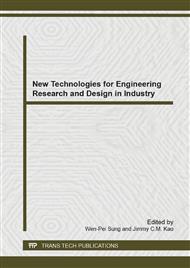p.2372
p.2378
p.2382
p.2386
p.2394
p.2398
p.2402
p.2406
p.2410
Research on the Psychological Capital and Job Burn-Out of Mechanical Engineers in Chinese Enterprises
Abstract:
This paper utilized questionnaires to conduct a research on a total of 160 mechanical engineers in five enterprises in Wuhan, China in search of the relationship between psychological capital and job burn-out of mechanical engineers. The result shows that the psychological capital and job burn-out are obviously negatively correlated. The elements of psychological capital such as self-efficacy, optimism, hope and toughness can negatively predict the elements of job burn-out such as emotional burn-out, depersonalization, and decreasing accomplishment. Enterprises of China should take measures such as psychological capital diagnosis, professional mindset training, work-family balance project, job transfer and career culture construction to develop the psychological capital of mechanical engineers and reduce job burn-out.
Info:
Periodical:
Pages:
2394-2397
Citation:
Online since:
June 2014
Authors:
Keywords:
Price:
Сopyright:
© 2014 Trans Tech Publications Ltd. All Rights Reserved
Share:
Citation:


